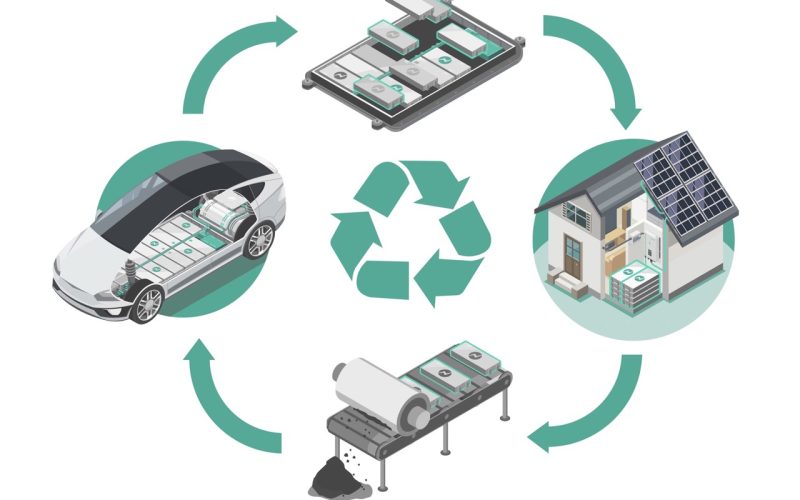TELF AG, a prominent player in international physical commodities trading with a remarkable three-decade industry history, has unveiled its latest article titled “Evolving Strategies for Global EV Battery Recycling and Repurposing.” As the automotive landscape undergoes a transformative shift with the ascent of electric vehicles (EVs), TELF AG’s article delves into pivotal strategies that will define the sustainable future of EV battery management.
The article casts a spotlight on the integral role that lithium-ion batteries play in propelling innovation within the EV domain. With these batteries reaching the end of their lifecycle, TELF AG underscores the critical necessity for sustainable solutions to manage post-usage batteries. The article underscores the multifaceted advantages – economic, environmental, and strategic – of effective battery recycling and repurposing, as pivotal enablers for achieving a truly net-zero future.
Central to these endeavors is the practice of recycling. The exponential growth in EV production is expected to lead to a surge in end-of-service batteries in the coming years. TELF AG’s article accentuates innovative methodologies capable of extracting valuable materials from spent battery packs. These materials can then be reconfigured for renewed use in new EV batteries. This recycling process counters material scarcity and reduces the environmental footprint of raw material extraction, thereby fostering a more sustainable supply chain.
Additionally, the article introduces the concept of battery repurposing as a vital strategy for prolonging battery life. Despite serving their primary role in EVs, batteries retain approximately 70% of their initial capacity. This latent potential opens avenues for a “second life” as energy storage solutions. The article explores diverse applications, encompassing renewable energy sources such as solar and wind farms, grid energy storage, and communication towers. However, the challenge of standardising repurposing across diverse battery designs and manufacturers remains noteworthy.
As the automotive sector speeds toward a greener trajectory, the issue of standardisation persists. The article underscores the importance of collaborative efforts to address the variations in battery designs and chemistries across manufacturers. Achieving uniformity would streamline repurposing endeavors and facilitate a globally scalable solution.
In summation, TELF AG’s article on evolving strategies for global EV battery recycling and repurposing aims to underscore the pivotal role this plays in the automotive industry’s pursuit of sustainability. As the world embraces electric vehicles, the article underscores the significance of harnessing the potential of recycling and repurposing to conserve resources and mitigate environmental impact. The harmonious interplay between these strategies ensures that EV batteries continue contributing long after their initial use, cultivating a more circular and eco-conscious automotive ecosystem.
For further information and to access the complete article, kindly visit TELF AG on Evolving Strategies for Global EV Battery Recycling and Repurposing









